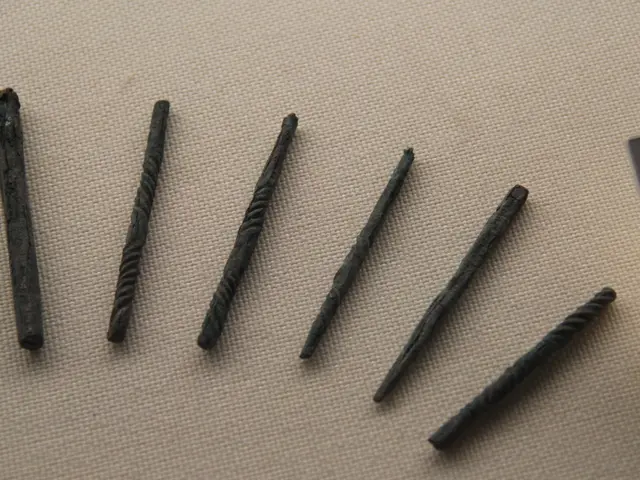Investigating the Claim: Telomeres - The Secret to Prolonging Vital Years and Retaining Youth?
Let's dive into the world of telomeres, those protective caps at the ends of our chromosomes. These bad boys are responsible for shielding our DNA from damage, and they've been linked to longer lifespans. But does that mean longer telomeres equals a longer, healthier life? Well, my friend, it ain't that simple.
Inside each of our cells, we've got 23 pairs of chromosomes—basically genetic blueprints wrapped in proteins. Telomeres reside at the ends of each chromosome, and they don't contain any genes. Instead, they're made up of repetitive DNA sequences that prevent the chromosomes from unraveling during cell division. Each time a cell divides, the telomeres shorten a tad, allowing the cell to keep replicating without losing crucial genes. When they get too short, the cell can't divide anymore and eventually kicks the bucket.
But here's the twist: longer telomeres may allow cells to divide more times, potentiallyimproving longevity. Studies have shown that telomeres shorten faster in short-lived animals than in longer-lived ones. So, theoretically, having longer telomeres could help us live longer, right? Not so fast. Some research suggests that longer telomeres could also jack up the risk of chronic health conditions. So, what gives?
Turns out telomeres are maintained by an enzyme called telomerase. This enzyme extends the telomeres, preventing them from shortening rapidly, allowing the cells to live for longer. The catch? Cancer cells have increased amounts of telomerase, which allows them to continue dividing indefinitely. Yikes!
Studies have demonstrated a correlation between telomere length and biological age. Shorter telomeres are generally connected with advanced chronological age and an increased susceptibility to age-related diseases. Moreover, individuals with certain genetic variations or negative lifestyle factors that accelerate telomere shortening tend to show signs of premature aging.
So what can you do to keep your telomeres happy and healthy? Well, you can't control your genetics, but you can make lifestyle choices that support your telomeres.
Exercise is crucial for overall health and might also help maintain telomere length. A balanced diet rich in fruits, veggies, whole grains, and legumes, like the Mediterranean diet, has been positively associated with telomere length. However, it's essential to avoid overdoing it with exercise, as one study found that helps maintain telomere length, but the benefits decrease with excessive exercise.
Tobacco smoking, stress, depression, and a lack of sleep all accelerate the shortening of telomeres, contributing to premature aging. On the flip side, taking good care of your mental health, quitting smoking, getting adequate sleep, and reducing stress can all help preserve telomere length.
Now, I gotta tell ya, while longer telomeres might be associated with longer lifespans, the evidence isn't 100% conclusive. Studies have found that some people with shorter telomeres manage to live longer than those with longer telomeres, and that other factors, like genetics, stress, and environment, also play a role in aging and disease. So, while telomere length is a fascinating aspect of aging and longevity, it's not the only game in town.
In conclusion, living a healthy lifestyle can help maintain your telomeres, reduce the risk of disease, and potentially contribute to a longer, healthier life. The genetic basis of aging is complex, and research continues to investigate various factors, including cellular, whole organism factors, the microbiome, and senescent cells. Stick to a balanced diet, get plenty of exercise, avoid smoking, manage your stress, get enough sleep, and take care of your mental health. Sounds like a pretty solid plan to me!
- In the realm of cellular biology, seniors often exhibit shorter telomeres, which are linked to advanced chronological age and an increased susceptibility to age-related medical-conditions.
- On the flip side, studies suggest that healthy lifestyle choices such as regular exercise, a balanced diet rich in biochemistry components, avoiding smoking, managing stress, and ensuring adequate sleep can help preserve telomere length and potentially contribute to a longer, healthier life.
- Moreover, scientific research indicates that general health, aging and longevity, and health-and-wellness are intricately linked to telomere length, as genetic variations or negative lifestyle factors that accelerate telomere shortening may lead to premature aging.
- Research on telomeres and aging is ongoing, as the relationship between telomere length and longevity remains inexact, with some evidence showing that some individuals with shorter telomeres may live longer than those with longer telomeres due to various genetic, environmental, and lifestyle factors.








